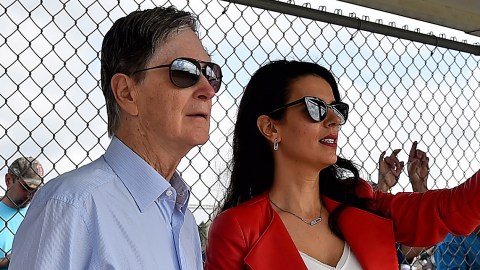 In Al Jefferson and Paul Millsap, the Jazz have two above-average players they cannot — and probably should not — both re-sign at the end of the season. The Jazz have no chance at winning a championship this year, so the wisest play seemed to be trading one or both of their impending free agents, collecting some young talent in return, and moving forward with their younger core.
In Al Jefferson and Paul Millsap, the Jazz have two above-average players they cannot — and probably should not — both re-sign at the end of the season. The Jazz have no chance at winning a championship this year, so the wisest play seemed to be trading one or both of their impending free agents, collecting some young talent in return, and moving forward with their younger core.
Instead, the NBA trade deadline passed last Thursday with the Jazz doing nothing. First-year general manager Dennis Lindsey did not even rid himself of Raja Bell, the veteran guard who has yet to suit up this season due to a contract dispute. Then the Jazz went out and lost their first two games after the deadline, including a blowout loss to the Clippers and Monday’s overtime loss to the Celtics, and the predictable hemming and hawing over the Jazz’s inaction echoed out of Salt Lake City.
Yet with less than 30 games remaining in the Jefferson/Millsap era, the Jazz could have done worse than to not deal either of their All-Star caliber frontcourt players. Lindsey’s inaction in fact might have been the most prudent action of any executive in the days leading up to the deadline.
This was a patient move by the Jazz, which is not typically the case when a team declines to move veterans for younger talent. Normally, holding onto proven commodities signals one more run at a title, no matter the long odds, sort of like the Celtics chose to do by keeping their core intact. The Jazz are not one of those teams. Even with Jefferson, Millsap and swingman Gordon Hayward performing at peak capacity, the Jazz are still a reliable shooter and a competent point guard away from competing for anything beyond a quick ouster in the first round of the playoffs.
The whole situation brings to mind a scene in The Hitchhiker’s Guide to the Galaxy. In Douglas Adams‘ novel, there is much fanfare as a supercomputer prepares to complete its million-year-long command to generate the answer to the meaning of life. After weeks of celebration, people gather in the streets before the computer finally spits out the answer: 42. The computer then promises to take another million years to generate the question.
Utah’s reason for standing pat at the trade deadline should make Adams proud. The answer: 40,953,602.
That is the number of dollars the Jazz free up this summer by doing nothing and letting their eight expiring contracts lapse. The four players who matter to the team’s future — Hayward, Derrick Favors, Alec Burks and Enes Kanter — are all under contract through 2015, with all still serving under their rookie contracts. The Jazz are comfortably below the luxury tax line, which means they will not be subject to any of the luxury tax “repeater penalties” that are triggered in two years. That sort of flexibility is more valuable than almost any package of players the Jazz could have secured in return for Millsap or Jefferson.
If you have been paying attention to the statistical breakdown of Utah’s bench this season — in which case, congratulations, you are my kind of geek — you know that the Jazz’s second unit has vastly outplayed the starters at times. This has led to exasperation in some circles with Jazz coach Ty Corbin‘s continued reliance on Millsap and Jefferson, who are standing in the way of the next generation.
What a generation that could be. Favors is the frontcourt version of Celtics guard Avery Bradley, arguably the league’s best defender at his position, with an offensive game that is just catching up. Hayward has improved tremendously as the team’s sixth man, and Burks has shown he was not worthy of the benching he endured to start the season. Kanter is, well, intriguing.
No matter how furiously fans and experts may demand that those kids play immediately, there is no harm in waiting. Hayward, 22, is the oldest in the group. Favors still needs to develop at least one post move before he can become a starting power forward or center in the NBA. Burks might be a really big point guard or a really little forward, but he has distinguished himself as neither. Kanter looks years away from being a viable NBA center, which is to be expected from a 20-year-old who never played a minute of college basketball. And if the Warriors do not completely topple between now and April, the Jazz would receive their first-round pick in this year’s draft.
The way forward for the Jazz is now clear. They will play out the rest of the season, losing a few heartbreakers like they did Monday, winning a lot more than they lose at home, and possibly prove to be a tough out for the Spurs, Thunder or Clippers in the playoffs. Then, the future arrives.
Have a question for Ben Watanabe? Send it to him via Twitter at @BenjeeBallgame or send it here.



